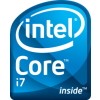- Qualcomm Launches Snapdragon 4 Gen 2 Mobile Platform
- AMD Launches Ryzen PRO 7000 Series Mobile & Desktop Platform
- Intel Launches Sleek Single-Slot Arc Pro A60 Workstation Graphics Card
- NVIDIA Announces Latest Ada Lovelace Additions: GeForce RTX 4060 Ti & RTX 4060
- Maxon Redshift With AMD Radeon GPU Rendering Support Now Available
Intel Core i7 – Choosing the Best Memory Kit

Can’t decide on the right memory kit to pick up with your brand-new Core i7 PC upon release? This article was designed for you. We aren’t comparing brands here, but are rather comparing densities and frequencies against each other to see if there’s any point at all in purchasing a higher-end kit. You might just be surprised at our results.
Page 4 – Final Thoughts
The idea for this article came to me quite a while ago, far before we even knew what Nehalem’s real name was going to become. The reason I never got around to taking care of it is simple. In order to realistically see the benefits of faster RAM, the CPU speed has to be kept the same. Until Core i7, that wasn’t really that possible, as the only way to be able to change the RAM speed while keeping the CPU the same would be to use a FSB speed of 600MHz. Given how rare that is to hit stable, using it wasn’t really a possibility.
Core i7 changed everything, because no matter the CPU speed, you’re able to choose a variety of RAM frequencies without touching anything else. While on Core 2, the FSB had to be increased, the Base Clock on Core i7 allows RAM speeds between DDR3-800 and DDR3-2133… giving us a great amount of breathing room to conduct our testing.
Taking a look at the results here, it seems pretty obvious that faster RAM, for the most part, isn’t going to make a noticeable difference to anyone. As much as memory companies would love to sell you their fastest part, it’s just not going to make a noticeable difference in most of what you do. Even our 3DMark Vantage scores were close to being identical, and that’s much more strenuous than any current game on the market.
I’m not going to jump to conclusions quite yet and say that RAM won’t make a noticeable difference somewhere, but I haven’t seen any evidence of it yet. In this article alone, we tackled 3D rendering, image manipulation, video encoding, mathematics and even gaming, but the only place we saw a real difference was with the synthetic scores of the memory-specific tests.
The question of which scenario would benefit from faster memory at a static CPU clock speed is one that’s been hovering around my mind for quite a while. I’ve asked numerous memory vendors over the past few years that exact question and have never received a straight answer, sadly. You can reach your own conclusions with that one.
That’s not to say that bigger differences wouldn’t be seen with previous architectures, because I’m confident that we would see more notable differences there. That’s mainly because the bandwidth to begin with doesn’t get near as high as on i7. But even then, most of the bandwidth there isn’t really touched to begin with, and the latencies between Core and Core i7 are roughly the same.
Bottom-line? If you are building a new machine for light work and don’t have huge gaming in mind, then a 3GB kit should suit you. If you are a hardcore gamer or heavy multi-tasker, a 6GB kit is going to be the right fit. As for the overall frequency, I think our article speaks about that enough. Personally, given our results here, I’d recommend a DDR3-1066 7-7-7-20. Or if it’s possible, find the same frequency with latencies of 6-6-6. I believe that a kit with those specs could even outperform the DDR3-1600 with 8-8-8, except with raw bandwidth.
I’ll also open the discussion and debate on whether faster memory has real benefits to most consumers in our discussion thread. If you yourself know of certain scenarios where faster RAM can make a greater than 2% improvement, we’d love to hear about it, and even consider implementing some of those tests into our future memory-related content. Likewise, if any memory vendors out there have comments, feel free to join in and let us know what we’re missing. If there’s any demand for a follow-up article that takes a more thorough look at things, please feel free to post about that also.
Discuss this article in our forums!
Have a comment you wish to make on this article? Recommendations? Criticism? Feel free to head over to our related thread and put your words to our virtual paper! There is no requirement to register in order to respond to these threads, but it sure doesn’t hurt!
Support our efforts! With ad revenue at an all-time low for written websites, we're relying more than ever on reader support to help us continue putting so much effort into this type of content. You can support us by becoming a Patron, or by using our Amazon shopping affiliate links listed through our articles. Thanks for your support!





